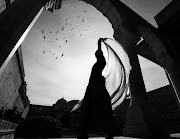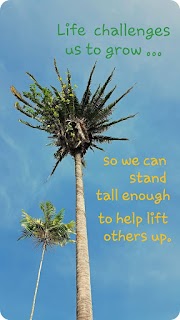Column:Bitch's Brew first published on Friday November 15, 2002
(Posting this to honour the tragically departed in the New Zealand massacre; to hope for restoration to his humanity of the man who perpetrated the horrific act; and to pray that we all can turn from violence as a means to try to "fix" anything.)
“WAR, what is it good for?”
As
Betrand Russell uttered, “War does not determine who is right ... only who is
left.
America
is a nation on the verge, prepared to launch itself at the Middle East, unable
to know what the consequences such action may have on the world. Every fourth
cable TV commercial seems to be inviting bright-eyed youth to become “An army
of one,” never showing the louring visage left behind after an army has
besieged a land.
In the
Japanese animated film, Hotaru
no Haka – Grave
of the Fireflies, we’re given a picture of the reality of war when the
soldiers, guns and glory of battle are suspended from the frame. The movie is
the Japanese answer to Steven Spielberg’s war epic, Empire
of the Sun.
Both
movies deal with the effect of war on those who are not soldiers, but are
forced to fight in their own way: not to conquer something or vanquish an
enemy, but simply to survive the chaos corrupting everything around them.
Evidenced
by both movies is the particular despair into which war orphans are pitched –
young, formerly guileless, forced into becoming beggars, thieves, con-artists
on their way to a laboured maturity that is no longer a guarantee.
They are
made victims no less than the dead: for though they learn the ways to keep
their bodies alive, all their youthful innocence is killed; and that is equally
a tragedy.
Directed
by Isao Takahata, this animated gem does a one-up on Spielberg’s big budget
fest several times over.
Based on
the novel by Akiyuki Nosaka, it won’t be long into the movie before you decide:
“I don’t want to see this”; as you grow aware that you’re ill-prepared for the
heartache that will fan out, settling a cool despondency over you, chilling you
to the marrow eventually.
No hand in war
“That’s
the day I died,” is the first bit of dialogue you hear; as the camera settles
on an unmoving displaced child propped against a pillar in a square in some
part of Japan.
You
later learn (because despite it all you can do nothing but watch, sensing that
it is important ... imperative you do) that the boy is Seita ... and once he
laughed, once he rollicked on the beach, once he took oh so very good care of
his little sister, Setsuko, whose fate you will divine soon enough.
All
glorification of war is absent from this movie. The story plods purposefully
along, painstakingly pressuring you into areas without shelter from the pain
tasted by those who had no hand in waging the war that deprives them of
dignity, solace, freedom.
Spielberg’s
film, starring a superb young Christian Bale, showed the hardship in trying to
take care of yourself during a war, and force-eating the chokingly distasteful
life lessons thus doled out: “I learned people will do just about anything for
a potato.”
Grave goes beyond: acknowledging how difficult it
is trying to take care of yourself and someone you love –
someone infinitely less able to survive alone than you.
At the
end, as the Bertrand Russell quote so rightly points out, there is not much
happiness to be had from a war having been fought by far away “heroes,”
supposedly for the sake of the very children who die from malnutrition because
there are no rations for the young.
This
tale ends, not in measured brightness, but in woe. Ain’t that the way deaths
go?
Even if
you are not a Japanime fan you should see this movie. Do not look for any
superhero high-kicks, just superhuman fortitude.
You
won’t have to remind yourself, “This is reality.” Because you’ll just get it.
You’ll get it so hard.
Open up
 |
| Poster for Hotaru no Haka |








